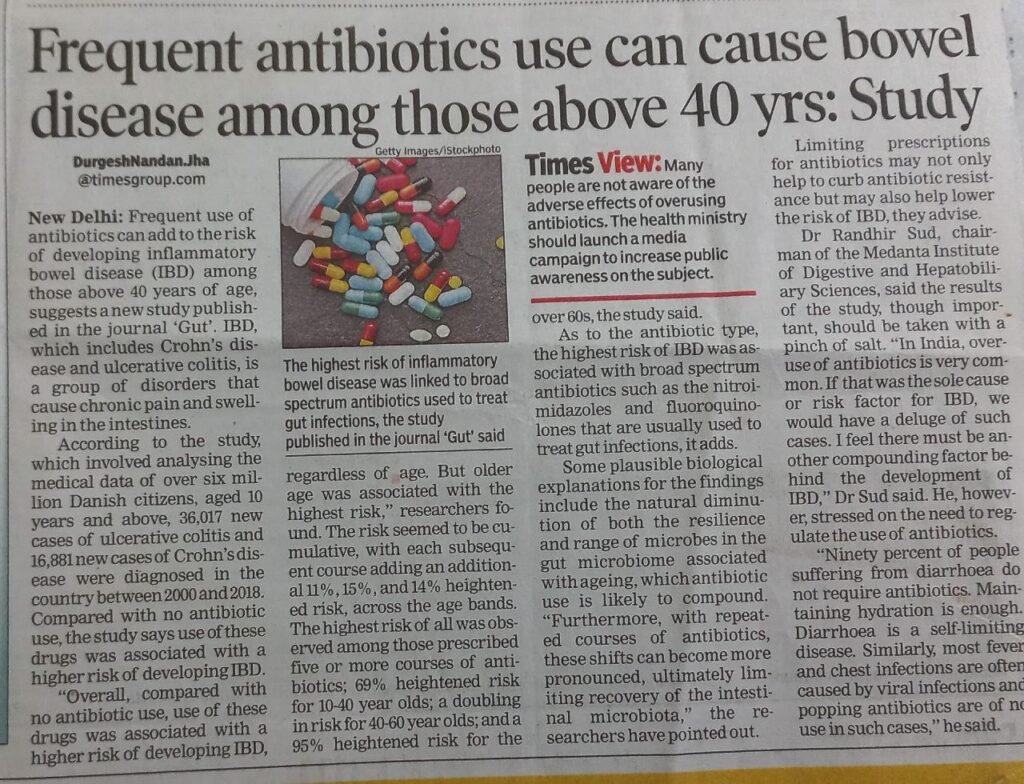Nowadays people are using “over the counter” antibiotics for self-medication. But do you know that using antibiotics frequently can cause havoc to your body. Most of the time they are not required. In this article we will discuss harmful effects of using antibiotics frequently, what should be done and what kind of infections do not require antibiotic intake?

If you are above 40 years and using antibiotics frequently then you are at an increased risk of developing inflammatory bowel disease (a recent study published in the journal ‘Gut’ suggests this). The study involved 6 million Danish citizens, aged 10years and above.
What is inflammatory bowel disease?
IBD is a group of disorders that can cause chronic pain and swelling in the intestines. IBD includes Crohn’s disease and Ulcerative colitis.
Older age at highest risk:
Use of antibiotics is associated with higher risk of developing IBD, regardless of age. However, older age is associated with the highest risk. With each course of antibiotics, the risk of developing inflammatory bowel disease increases. The highest risk of all was observed among those prescribed 5 or more courses of antibiotics. 95% heightened risk for the individuals in their 60s, who have been prescribed 5 or more courses.

Antibiotic associated with highest risk of IBD
The highest risk of IBD was associated with broad spectrum antibiotics such as nitroimidazoles, fluoroquinolones that are usually used to treat gut infections.
Biological explanation of how antibiotics cause IBD?
With age both the range and resilience of microbes in the gut microbiome decreases and antibiotic use decreases it further.
Repeated course of antibiotics deteriorates our gut microbiome which makes the recovery of intestinal microbiota difficult.
What should be done to prevent overuse of antibiotics?
1. Limiting prescriptions for antibiotics will help in lowering the risk of IBD and could also help to curb antibiotic resistance.
2. Regulating the use of antibiotics, for example, 90% of people suffering from diarrhoea do not require antibiotics, maintaining hydration is enough. Similarly, we don’t require antibiotics for viral infections which include most of the fever and chest infections. Popping antibiotics for viral infections is of no use.

Do not use antibiotics for viral infections
Conclusion:
Frequent use of antibiotics puts you at risk of IBD, therefore overuse of antibiotics should be avoided.
Antibiotics are not required to treat viral infections.
Antibiotic use should be regulated.
